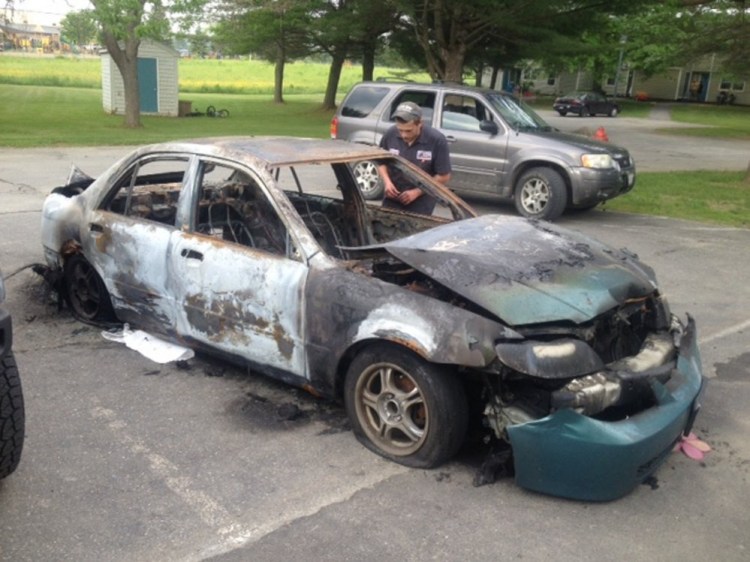SKOWHEGAN — A 15-year-old Skowhegan boy charged in connection with four car fires that were set early Monday morning in Skowhegan is being held in juvenile detention as he awaits a mental health evaluation, according to District Attorney Maeghan Maloney.
The Office of State Fire Marshal, along with the Skowhegan Police Department, arrested the boy Tuesday afternoon at his home on charges of arson and burglary. His name has not been released because of his age, but it could be later if Maloney files a juvenile petition for a felony charge.
She said she has not filed such a petition but has “an agreed-to springing order” for a mental health evaluation. A springing order “allows him to leave custody the moment an evaluation bed becomes available,” Maloney said.
Four vehicles in the Family Circle housing complex on West Front Street were set on fire around 4:15 a.m. Monday. Two of the vehicles were destroyed and the others were badly damaged.
Investigators determined the fires were set by lighting combustible materials inside the vehicles. While searching the boy’s home, authorities found a set of keys to one of the vehicles under his pillow.
The boy was taken to the Mountain View Youth Development Center in Charleston.
Quincy McLaughlin, owner of a 2001 Mazda Protege LX that was set afire, said Monday afternoon outside his home, “They think it started in my gas tank. They lit it up with something. They shoved a rag down in there or something. My neighbor came pounding on my door at 4:15 this morning and told me my car was fully engulfed.”
McLaughlin, 24, said his front window had been smashed out the previous week and suspects the fire might have something to do with that incident.
The events are unsettling, he said, because he lives there with his girlfriend and two young children.
Maloney said the juvenile justice system is different from the adult criminal justice system, which has four pillars: rehabilitation, punishment, protection of the community, and deterrence.
The juvenile system has one pillar — rehabilitation, she said.
“The focus is always 100 percent rehabilitation in the juvenile system,” Maloney said.
She said for that reason, a case begins with a juvenile community corrections officer who chooses an internal adjustment in most cases. When this happens, the case does not reach the district attorney’s office and a petition is not filed.
Maloney said a bind-over to adult court happens only when a juvenile has committed a crime that is “so horrific that the pillar of protection of the community needs to be invoked.”
When seeking a bind-over — to allow the juvenile to be treated like an adult — the state is rarely successful, she said.
“I have seen limited success in murder cases, but even then the court is reluctant to allow the juvenile to enter the adult system,” she said. “In the case of the juvenile that set fire to cars, I will not be seeking a bind-over. I will not make a decision on filing a petition until that evaluation is complete.
“If I bring a petition, his name will be public.”
Doug Harlow — 612-2367
Twitter:@Doug_Harlow
Send questions/comments to the editors.




Comments are no longer available on this story